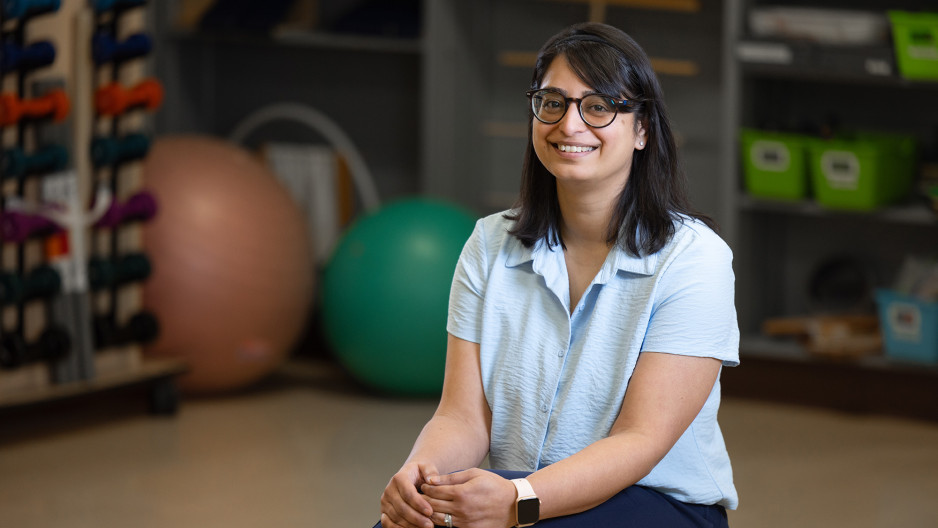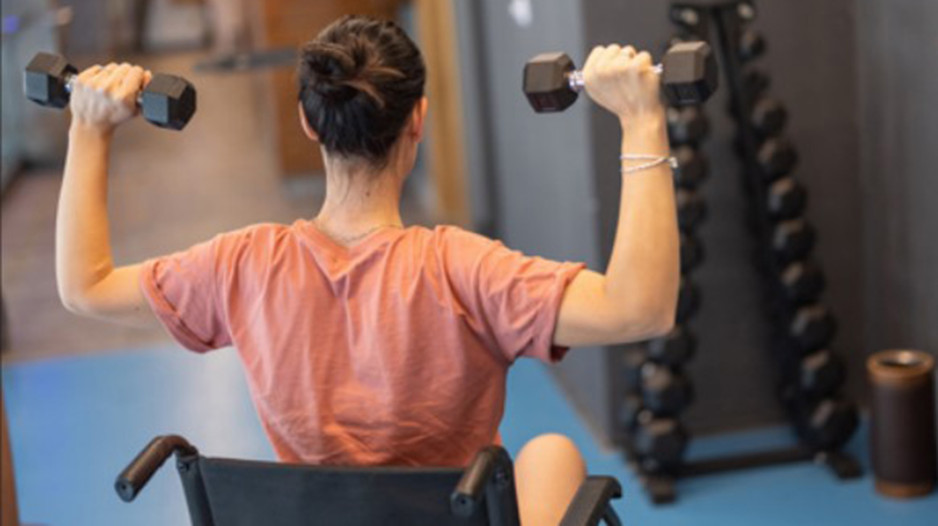Rebuilding through care and connection
Five years ago, donors helped Dr. Swati Mehta launch a unique mental health study for people with physical disabilities, not knowing how many lives it would change.
Today, hundreds of people are thriving in mind, body and spirit after participating in Dr. Mehta’s internet-based Cognitive Behavioural Therapy (iCBT) program. iCBT empowers people to manage their mental health and physical symptoms from the comfort of their home.
“I call it ‘The Handbook for the Recently Disabled’,” says Kim, a past graduate of the program.
This “fiercely independent” wife and mom was diagnosed in 2020 with a debilitating demyelinating disease. It affected every part of her body; out of the blue she had nerve damage, paralysis, vision impairment and couldn’t walk or stand.
“I was deeply in denial about my capabilities and the reality of living the rest of my life as a disabled individual,” Kim says. She became isolated and started to lose hope in her future.
But when Kim took the iCBT course, she found the tools to put her life back together. “It gave me so much information and also a sense of validation, that I am not alone,” Kim says.
Dr. Mehta was inspired to launch this project after noticing a gap in mental health supports available for people like Kim. For many, managing their physical symptoms and adjusting to their new reality can lead to anxiety, distress and depression.
“So much of their identity has changed,” says Dr. Mehta. “How they interact with the world changes because they’re not able to do a lot of the things they used to. They need help to manage those emotions and thoughts, accept those changes and process that grief.”
Dr. Mehta’s research team leveraged technology to create iCBT programs tailored for three patient groups at St. Joseph’s: acquired brain injury; spinal cord injury; and stroke survivors.
These unique programs combine CBT assignments and connection to a care provider with pain management tools. During the pandemic, the team also created an online group physical activity program (including seated boxercise, aerobics and yoga) led by fitness professionals with lived experience.
During the past five years, the team has studied the impact on patients’ quality of life and health outcomes – with a tremendous response. Participants have less depression and anxiety, they’re better able to manage their physical symptoms and they feel a strong sense of community.
“We’re encouraging and motivating people to get back out there and see that they have so much to offer to the world,” says Dr. Mehta.
For Kim, the course changed everything. “It is the most truly incredible thing to believe your life is over because you’ve become disabled, then to have the opportunity to be lucky enough to take this course and find hope,” she says. “True hope is priceless.”
"We’re encouraging and motivating people to get back out there and see that they have so much to offer.”
– Dr. Swati Mehta

